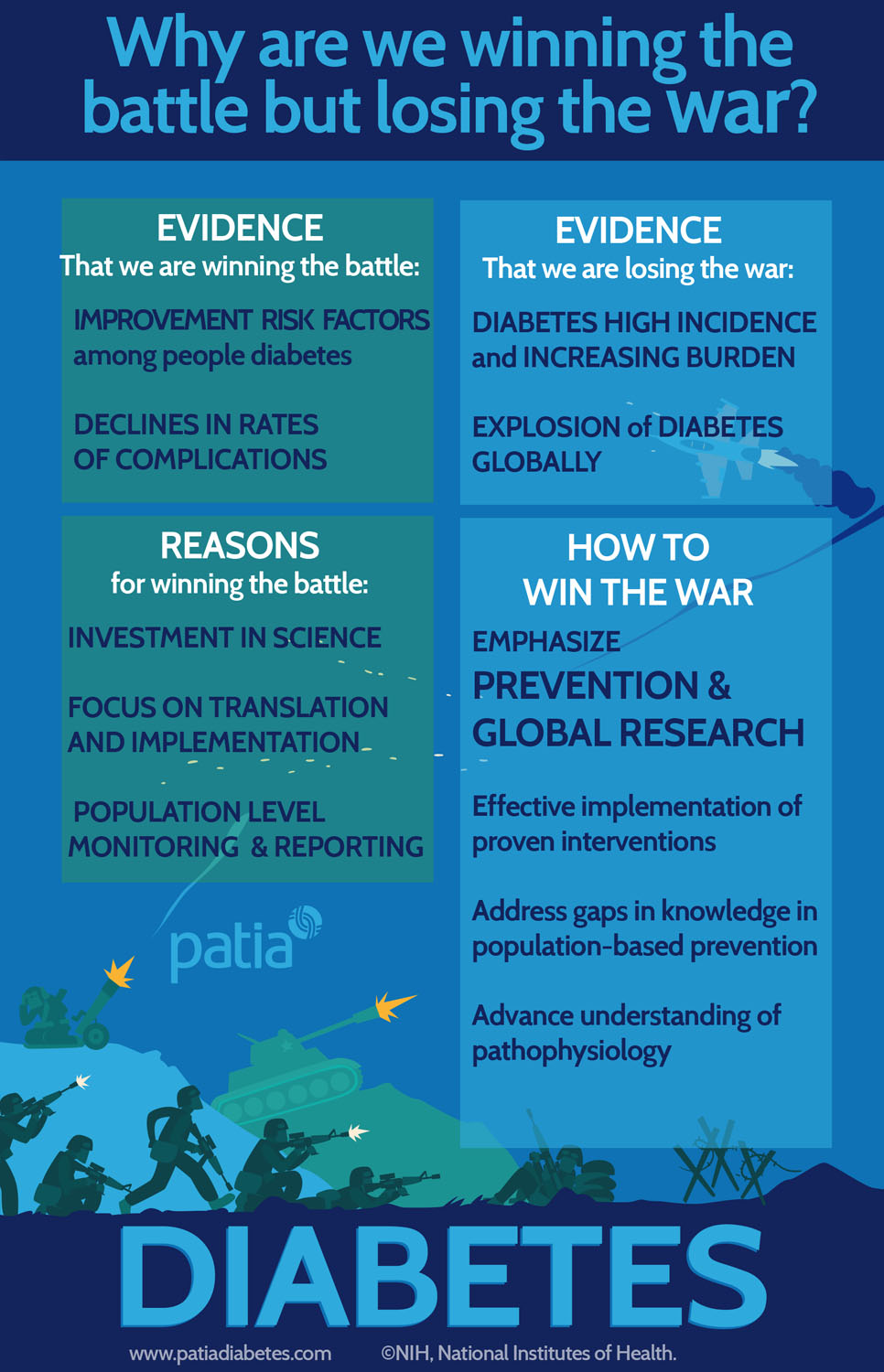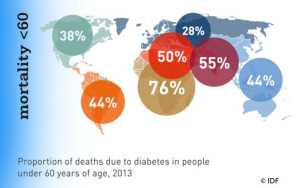Diabetes can dramatically shorten your life
Diabetes is associated to an increase of 75% mortality rate in adults. Moreover, at the age of 60, it is estimated that, once diagnosed with diabetes, life expectancy may drop five years.
By Juan Revenga
Such is said in a recent article in The Lancet magazine titled: Trends in cause-specific mortality among adults with and without diagnosed diabetes in the USA: an epidemiological analysis of linked 
According to this study we are currently witnessing a diversification of the causes of death among people with diabetes, which indicates the need to insist on clinical management, prevention and observation of a range of more diverse complications related to diabetes.
Winning the battle but losing the war
It is very important to point out that when it is said that the proportion of the deceased due to cardiovascular causes has declined, it does not mean that die less because of diabetes. On the contrary, the proportion of deaths due to cardiovascular issues is lower, but the total number of deaths due to the complications of diabetes is much greater than 30 years ago.
We shall remember some objective data:
- The International Diabetes Federation estimated that in 2017 there were 425 million people with diabetes worldwide
- This figure represents an increase of 274 million cases compared to those in 2000
- In 2017, the number of deaths attributed to diabetes and its comorbidities was about 4 million, compared to 2 million in 2000.
- The mortality rate is higher in people with diabetes than without, within the same gender and age.
It is said in this interesting and award-winning conference by Dr. K.M. Venkat Narayan published in Diabetes Care: “Diabetes type 2: Why are we winning the battle but losing the war?”:
“We are witnessing several improvements in the control of diabetes, reduction of the rate of complications and mortality, all this thanks to investments in science, dedication to implement these findings and the improvement in the quality of care. However, this good news is overshadowed by the increasing absolute numbers relative to people with diabetes and their complications, and by the unprecedented growth of diabetes in low and middle-income countries.

Prevention and empowerment of citizens
As strategies to win the war, the author of this sublime conference point to: The first of them put all the emphasis on primary prevention. That is, avoid cases of diabetes much earlier than treating existing ones. For this, it is crucial to identify prediabetes cases as soon as possible, especially in risk groups. And the second, the Global Investigation in relation to two questions:
- Know the true limitations of primary prevention (healthy eating and physical activity)
- To advance understanding of the physiopathological differences, which leads towards a new classification of diabetes.
By Juan Revenga, dietitian & nutritionist
Latest posts by Juan Revenga Frauca (see all)
- Obesity recognized as a chronic disease - 13 October, 2021
- Who said you have to eat everything? - 7 October, 2021
- Diabetes and Alzheimer - 29 January, 2021









